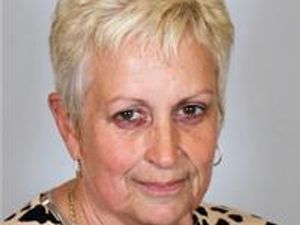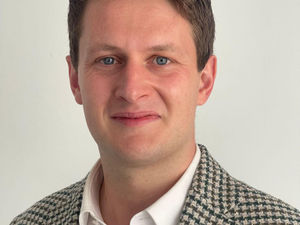In full: Read Noel Conway's poignant final letter
Noel Conway lived with dignity in life and, his family say, had a dignified death.
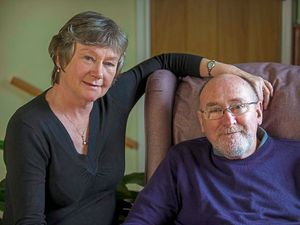
The 71-year-old former lecturer, from Garmston, who had campaigned for changes in the law over assisted dying after he was diagnosed with Motor Neurone Disease in 2014, took the decision to remove his ventilator with the support of his family and local hospice.
His wife, Carol, said he died, peacefully, on Wednesday a painless and dignified death, thanks to the hospice team, ventilation nurses and all involved.
In a poignant letter which, he said, could be read after he died, Mr Conway explained why he had made his decision. He said he did not want to leave the decision until he was completely bed ridden and unable to communicate at all.
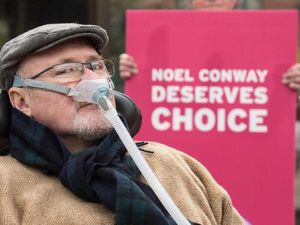
Mr Conway, a former lecturer, wrote: "When you read this I will be dead. Not because I have suffered a tragic accident or died suffering from a long-standing or painful disease. No, it will be because I have made a conscious and deliberate effort to end my own life. I suffer from motor neurone disease (MND) and was diagnosed over six years ago, knowing that at some stage I would reach a point when my muscles would have deteriorated to such an extent that I could not function effectively.
"MND is a terminal disease but it varies enormously between individuals, so I did not know when I would be facing the final moments. From the period of my diagnosis I was provided with a ventilator, a piece of equipment that has supported my breathing and which was essential even at that early stage to enable me to get a proper night’s sleep. However, it was only about two years ago that I began to use the ventilator more and more frequently during the day as my breathing muscles deteriorated.
"It was about a year ago that I became totally dependent on the machine, almost 24 hours a day, seven days a week. I was able to accommodate myself to the new personal regime and a modicum of fulfilment and satisfaction, for example savouring food and drink, engaging in convivial conversation with my friends and others, and periodically visiting local hostelries with my wife Carol.
Deteriorated
"But, over the past two months it has become increasingly evident to me that the balance of fulfilment in life, or if you like, my quality of life, has dipped into the negative so I can no longer do those things I could before. My voice has depleted to the extent that many people cannot now tell what I say, my eyesight recently deteriorated and I am now classified as partially sighted. I discovered quite out of the blue I had age-related macular degeneration in both eyes. So, now I cannot read normal print size and can just about make out shapes on the television.
"For someone who had refocused his life on being a writer, particularly of historical novels, it has become very difficult to undertake research, to the extent that my recent book has been put on hold. In addition, I am very much aware of the loss of bodily function – I’m already a paraplegic and I cannot use my hands or fingers, but I am aware that my neck muscles are weakening as are my mouth and speech muscles. I recognise that the time has come to take the decision now to do something about this. I am not leaving it until I’m completely bed-ridden and unable to communicate at all.
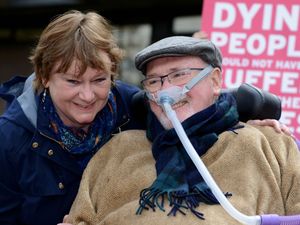
Mr Conway's letter stressed his death was legal.
"Under UK law, it is perfectly legitimate to remove a ventilator from someone like me and it is not assisted dying, as a ventilator is a medical intervention by others to support life.
"Assisted dying is where someone actually helps me to access and take medication to bring about my death and this is currently illegal. Ironically I have spent the last several years campaigning to have the law changed but without success, although the topic itself has been aired nationally and is much more prominent now than it ever was. I am glad that Parliament is continuing to discuss it and investigate the possibilities of an assisted dying law in line with many other countries over the last few years.
Supervised
"I now find myself in a privileged position of being able to identify the time of my death, its manner and the place. These are all objectives of assisted dying. However, this can only be done legally because I am a user of a ventilator and the whole process will be supervised and managed by medical staff from the palliative care team, for whom I have the highest regard.
"My heart goes out to all those people who are terminally ill with cancers and other horrible diseases which make their lives execrable because they can’t find any release from their terrible suffering.
"Since this option was established the relief in how I would die has been remarkable. However, it is by no means an acceptable equivalent to assisted dying, as the lead up to the removal of the ventilator has revealed."
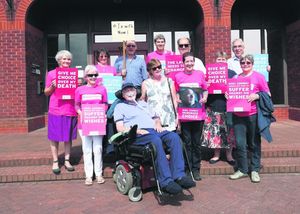
Mr Conway went on to explain that he would be sedated before his ventilator was removed and that the whole process could take as many as six to eight hours.
"Clearly this is far removed from the swift end-of-life process as practised in Switzerland, Oregon and other countries where it is permitted. This is not something I would have chosen, but I feel that I have no alternative to ending my life without pain and suffering and without compromising others.
"Finally, I would like to say a great big thank you at Dignity in Dying for all their help and support over the years of the campaign. It can only be a question of time before assisted dying will be approved in the UK and I am sure we all look forward to that time."

